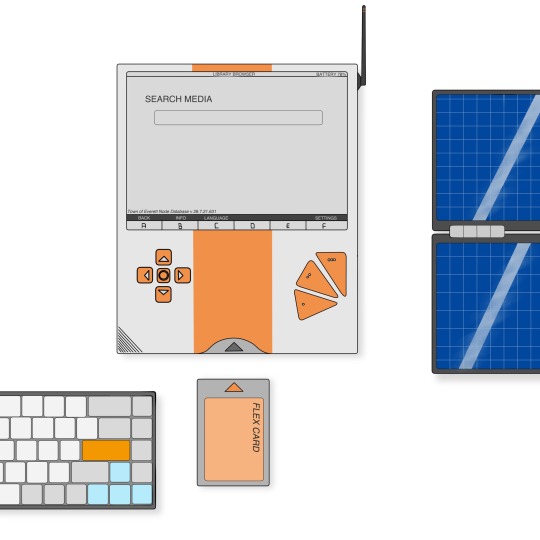The Internet of a Kind of Future part 2
When designing the internet for the future world I'm building, I imagine things have by necessity gotten simpler. What happens when you cannot manufacture computers anymore, but you have a lot of old salvageable screens and processors, and a lot of 3D printers?
The tablet in this world is their every day computer. It's fairly light weight, durable, low power, and easily repairable.

Your tablet has been designed around easily salvageable parts, those commonly found in the ruins of old cities. It is upgradeable, repairable, waterproof, built to last. If you cannot find a new part, chances are a scrapper can 3D print one for you. Rumor has it some of the original batch of tablets are still being used 20 years out.
Your tablet is designed to be energy efficient. With its epaper screen, smart use of the wireless can result in a batter that last for weeks. On a sunny day, a solar charger can replenish a battery in as little as one hour. Of course, it'll take a little longer in our Pacific Northwest winters.
So with the tablet in mind, the internet needs to reflect that.
I found out about Gemini on Metafilter last year. Alternate technologies push a lot of buttons for me, so I've been keeping an eye on Gemini since. Finally, a few weeks ago, I decided to take the plunge and really dig deep. I will say that the Lagrange browser and Elaho on iOS has made a huge difference. They're both easy to use and feel like modern browsers.
Gemini is nicely lightweight. The text-mostlyness of it fits really well with epaper screens and delay-tolerant networking. It feels... nice. Clean, even. And it's nice not having popups asking me to sign up for a mailing list, or warning me that I've already read their publication too many times. It feels like a throwback to the 90s web. People keep blogs, or gemlogs, there's news and weather, and articles and archives, the kind of thing you'd expect to find on the web, just in nice clean plain text. This fits the needs of these future people really well. They still can get pictures and videos and sound, just in separate applications (and transferable via data cards, which is just an aesthetic I like).
And this is a lot of the reason I started playing in the Geminispace. I wanted to see how it works, and I have to say, it feels right.
-donut
Notes:
Metafilter article “Bringing cyberspace down to Earth”
(This blog is mostly mirrored on a Gemini site. It can be reached in a Gemini Browser at gemini://officialdonut.smol.pub. Take off the gemini:// and the site works in https)